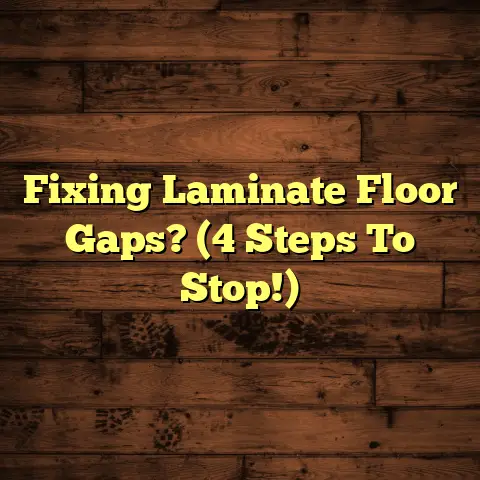Average Prices Per Square Foot For Engineered Hardwood Floors
Engineered hardwood is a popular flooring option that offers the beauty of solid hardwood with added stability and moisture resistance. Engineered floors have a plywood or high-density fiberboard core topped with a layer of solid hardwood. This construction makes them less prone to expansion and contraction issues compared to solid wood.
When shopping for engineered hardwood, one of the first things homeowners ask is “How much will it cost to install in my home?” Prices can vary widely based on the wood species, plank sizes, finishes and more. This article will break down the factors that impact cost per square foot so you can determine realistic budgets. We’ll also provide tips to find the best value engineered floors for your project.
Average Costs Per Square Foot
Engineered hardwood costs between $4 and $13 per square foot installed, on average. However, it’s possible to spend below or above that range depending on materials and labor rates in your area.
Entry-level products start around $4 per square foot for basic oak engineered wood without fancy finishes. On the higher end, exotic species like walnut or maple with hand-scraped textures can run $13 per square foot or more with installation.
In general, you can expect to spend:
- Basic engineered oak floors: $4 – $8 per square foot
- Engineered hickory or maple: $6 – $10 per square foot
- Exotic engineered species: $10 – $13 per square foot
But keep in mind, many factors impact the final price…
Factors That Impact Cost Per Square Foot
While the wood species plays a role in flooring costs, it’s not the only factor that will determine your budget. Here are the top considerations that affect price per square foot:
Wood Type
Oak remains the most popular choice for its attractive, natural look. But other woods like hickory, maple, and exotic species can drive up cost.
- Oak: $4 – $8 per square foot
- Maple or hickory: $6 – $10 per square foot
- Exotic species: $10 – $13 per square foot
Plank Widths
Wider planks generally cost more, but have a more dramatic, modern look.
- 3-inch wide planks: $4 – $6 per square foot
- 5-inch wide planks: $6 – $8 per square foot
- 7-inch+ planks: $10+ per square foot
Finish Options
Hand-scraping and staining add to the overall expense over basic polyurethane finishes.
Regional Labor Costs
Installation rates vary greatly across different parts of the country. Labor makes up 50-70% of the total cost.
Subfloor Prep Needs
If your subfloor requires extensive repairs, leveling or moisture barriers, costs can add up.
Tips for Finding the Best Value
Now that you know the factors that drive engineered wood flooring costs, here are some tips to find the best value for your project:
Shop Low-Cost Wood Species
Oak and pine are affordable species to consider if working with a limited budget. They cost less than premium woods but still provide a nice look.
Choose Narrower Planks
Planks around 3 inches wide offer an attractive look for less compared to wide 7-inch planks. Go for standard widths to save.
Skip Extras Like Hand-Scraping
While hand-scraped and distressed plank textures look amazing, they rack up costs fast. Opt for clean, uniform finishes if chasing value.
Install DIY to Save on Labor
Labor makes up 50-70% of flooring costs. If you’re an experienced DIYer, self-install to slice huge chunks from your bottom line costs.
Buy Direct Online
Online retailers like Lumber Liquidators offer low-cost engineered floors by cutting out the middleman markups. Just factor in shipping or local pickup costs.
Time Sales Around the Holidays
Shop seasonal sales around holidays like July 4th, Labor Day or Black Friday when retailers offer deep discounts to boost revenue.
Engineered Wood Flooring Cost Calculator
Use this engineered flooring calculator to get an instant estimate for materials and installation costs in your home:
Flooring Area (square feet):
Material Costs Per Square Foot:
Basic Engineered Oak: $4 – $8 per square foot
Engineered Maple/Hickory: $6 – $10 per square foot
Exotic Engineered Species: $10 – $13 per square foot
Installation Costs Per Square Foot:
DIY Installation: $0
Professional Installation: $4 – $8 per square foot
Total Project Cost Estimate:
To use:
- Measure square footage of space
- Enter into calculator
- Select material cost per square foot
- Select installation cost per square foot
- View total cost estimate
This calculator provides rough estimates for budgeting purposes only. Contact flooring stores in your area for exact quotes. Costs vary based on location, materials and labor rates.
DIY Installation Tips
Installing engineered hardwood floors yourself can save thousands in labor costs. If tackling this DIY project, keep these tips in mind:
Prep the subfloor – Remove all furniture, nail down loose boards and fill cracks with floor leveler. Engineered wood needs a flat, even subfloor.
Lay moisture barrier – Place barriers like Aquabar “B” on concrete to block ground moisture that damages planks over time.
Acclimate the flooring – Let boxes of flooring sit in the room for 72 hours before installing so the wood can adapt to your home’s temperature and humidity.
Allow for expansion gaps – Leave 1/2 inch gaps between flooring and walls or fixed objects so the planks can expand and contract naturally without buckling.
Stagger end joints – Lay planks in a staggered brickwork pattern to ensure a stable, level surface and avoid weak seams.
Maintain proper nail schedule – Research and follow the manufacturer’s recommendations for nail size and spacing between nails/staples. This keeps planks securely fastened.
Check for clearance – Make sure to leave proper clearance under doors, appliances, cabinets and transitions once the new flooring is installed.
Engineered Wood Flooring Pros and Cons
Engineered hardwood offers many benefits, but also comes with a few drawbacks to weigh:
Pros
- More stable than solid wood
- Resists moisture better
- Easier installation
- Can be glued/floated over more subfloors
- Wide plank widths available
Cons
- Less ability to refinish over time
- Not as “natural” as solid wood
- Still moderately expensive
- Resale value less than solid wood
Trending Engineered Floor Ideas
Engineered hardwood remains popular thanks to its stylish look and resilience. Here are some of the hottest engineered flooring trends right now:
Wide Planks
Wider planks like 7-inch with long boards create a modern, dramatic look. Distressed finishes add character.
Grey Stains
Grey stained oak, maple or hickory floors set a moodier, elegant tone with professional appeal.
Natural Variation
Multi-width planks with a range of natural wood grain and color variations take the uniformity out of wood.
Exotic Species
Unique woods like tigerwood, acacia and eucalyptus make bold, artistic statements in homes.
Engineered Wood Flooring FAQs
Still have some questions about costs, installation, or maintenance? Here are answers to the most frequently asked questions about engineered hardwood floors:
How long do engineered floors last?
With proper care, engineered floors last 30-80 years thanks to the stability of the cross-ply core. Top layers can be re-sanded 1-2 times if they become damaged.
Do engineered floors add value to homes?
Yes – engineered wood floors boost resale value. However, they add less value compared to site-finished solid floors. Expect 60-80% ROI on average.
Can you refinish engineered wood?
Engineered wood can be refinished 1-2 times if the top hardwood layer is thick enough. Budget for an additional $3-5 per square foot for resanding/refinishing when the time comes.
What is the most durable engineered wood?
Oak is the toughest, most durable species of engineered flooring. Exotics like acacia and tigerwood also hold up very well. For finishing, aluminum oxide coating protects against scratches and dents.
Can you install engineered floors over concrete?
Yes – engineered wood is frequently installed as a floating floor over concrete. Just be sure a moisture barrier is laid first, then underlayment before clicking planks together.
Do I need an expansion gap with engineered wood?
Yes, expansion gaps are still required around the perimeter of rooms even with more stable engineered floors. Allow 1/2 inch gaps between flooring and walls or fixed objects.
Conclusion
While engineered wood flooring has a wide range of prices per square foot, you can expect to budget $4 – $13 on average for materials and professional installation in most homes. Oak and pine offer an affordable starting point, while exotic species with hand-scraped finishes run up costs quickly.
Follow the tips above to find good value engineered floors that fit your budget. And don’t underestimate the impact you can make by installing new floors yourself as an easy DIY project.
As you shop around, use the engineered wood calculator to estimate total project costs based on the flooring and labor rates in your area. This will give you a realistic budget before locking in quotes with flooring stores.





